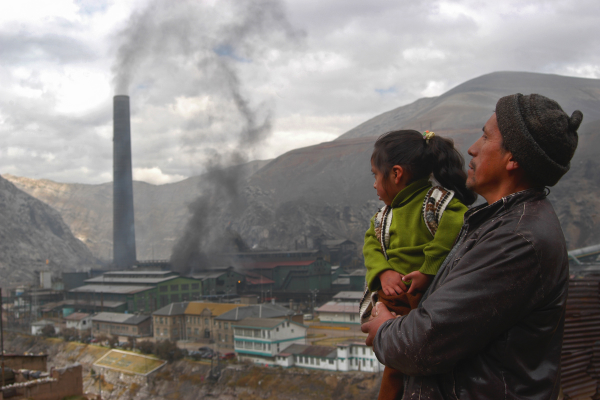Villanova University’s Latin American Studies Program and Department of Spanish Host “Defending the Land” Conference

Photo credit: Flor Ruiz
VILLANOVA, Pa—In the face of profound uncertainties about the Earth’s future, it’s more important than ever to reconsider the socio-environmental impacts of our local, national and global relationships. To further define and explore these relationships, the Latin American Studies program and the Department of Spanish at Villanova University will host a conference "Defending the Land: Socio-Environmental Conflicts in the Americas" from April 22 – 23, 2022, featuring two keynote speakers, Gabriela Valdivia, PhD, and Jaskiran Dhillon, PhD, and invited filmmaker Ana Llácer.
Gabriela Valdivia, PhD, professor of Geography at the University of North Carolina at Chapel Hill and assistant dean, Honors Carolina, will deliver the opening keynote address, “Feminist Political Ecologies of Healing in the Americas” on Friday, April 22 at 9:30 a.m. Dr. Valdivia is a feminist political ecologist examining the relationship between resources and socio-environmental inequities, with a focus on environmental injustices in Latin America. She is co-author of the digital project “Crude Entanglements,” which explores the affective dimensions of oil production, co-author of Oil, Revolution, and Indigenous Citizenship in Ecuadorian Amazonia (Palgrave Macmillan, 2016), and co-editor of the Routledge Handbook of Critical Resource Geography (Routledge, 2021).
The conference will include a film screening of the documentary UMA: A Water Crisis in Bolivia on April 22 at 4:20pm. The screening will be followed by a Q&A session with director and producer Ana Llácer. Llácer is a Spanish/American journalist and independent documentary filmmaker, particularly interested in stories with an environmental justice focus and rooted in the vindication of human rights. Her recent works include the short films No Fate (2015) and Royalty (2020) and the documentary Uma: A Water Crisis In Bolivia (2020)—winner of the Best Documentary Feature Award at the Red Nation International Film Festival and the Best Indigenous Film Award at the Wildlife Conservation Film Festival, both in 2020.
To close the conference on April 23 at 4:30 p.m., Jaskiran Dhillon, PhD, associate professor of Global Studies and Anthropology at The New School, will present “Organizing Against Climate Change: Anti-Colonial Feminist Praxis, Solidarity, and Future Making.” Dr. Dhillon is an anti-colonial scholar and organizer who grew up on Treaty Six Cree Territory in Saskatchewan, Canada. Her work spans the fields of settler colonialism, anthropology of the state, environmental justice, anti-racist feminism, colonial violence, political ecology and youth studies. Her writing has been published in The Guardian, The Nation, Cultural Anthropology, Feminist Formations, Environment and Society, Social Texts, and Decolonization among other outlets. She is the author of Prairie Rising: Indigenous Youth, Decolonization, and the Politics of Intervention (University of Toronto Press, 2017) and co-editor of Standing with Standing Rock: Voices from the #NoDAPL Movement (University of Minnesota Press, 2019). Her new book, Notes on Becoming a Comrade: Solidarity, Relationality, and Future Making is forthcoming from Common Notions in 2022.
The conference will also feature panels from Villanova graduate students, as well as regional and international scholars. The interdisciplinary conference aims to examine how the transformation and degradation of the environment—caused by the colonial enterprise that began in 1492—has shaped human ecologies across the Americas. To that end, the event will create discussion about how colonialism, the commodification of nature, and economies of extraction and dispossession frame ecological and social discourses and practices.
